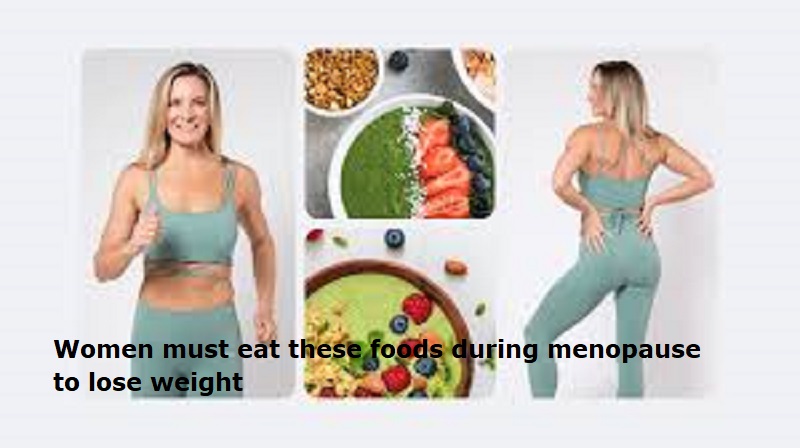
Menopause is the time that marks the end of menstrual cycles of women. It is a natural biological process and e can happen between 40s or 50s. Menopause is characterized by a one-year absence of menstruation. It is a natural and inevitable phase in a woman’s life.
Every woman experiences menopause symptoms differently. Some might experience drastic changes while others might not even notice any change. Irregular periods, vaginal dryness, mood swings, hot flashes, weight gain, poor metabolism and sleep problems are some common symptoms of menopause.
During menopause, women may experience changes in metabolism and hormonal fluctuations, which can make weight management more challenging. Including certain foods into your diet can help support weight loss and overall health during this stage.
Here are 10 foods that can help you lose weight during menopause:
1. Leafy greens
Leafy greens are low in calories and high in fibre, which can promote satiety and help control appetite. They are also rich in vitamins, minerals, and antioxidants, which support overall health and reduce the risk of chronic diseases.
2. Salmon
Salmon is a great source of protein and healthy fats, particularly omega-3 fatty acids. Protein can help increase metabolism and reduce appetite, while omega-3s have been shown to support weight loss and reduce inflammation.
3. Greek yogurt
Greek yogurt is high in protein and low in carbohydrates, making it a satisfying snack that can help control hunger. Additionally, the probiotics found in yogurt can support gut health, which is linked to weight management and overall well-being.
4. Berries
Berries are low in calories and packed with fibre, vitamins, and antioxidants. The fibre content helps regulate blood sugar levels and promote feelings of fullness, while antioxidants support cellular health and may reduce the risk of chronic diseases.
5. Quinoa
Quinoa is a gluten-free whole grain that is high in protein and fibre. Its complex carbohydrates provide sustained energy and can help regulate blood sugar levels. Quinoa also contains vitamins and minerals that support overall health.
Also Read: Follow these simple ways to overcome smartphone addiction
6. Avocado
Avocado is rich in healthy fats, particularly monounsaturated fats, which can help reduce appetite and promote feelings of fullness. Additionally, avocados contain fibre, vitamins, and minerals that support heart health and overall well-being.
7. Nuts
Nuts are a nutrient-dense snack that provides protein, healthy fats, and fibre. The combination of protein, fat, and fibre also helps stabilise blood sugar levels and support energy levels throughout the day.
8. Legumes
Legumes are a good source of plant-based protein and fibre, which can help promote satiety and reduce calorie intake. They also contain vitamins, minerals, and antioxidants that support overall health and may reduce the risk of chronic diseases.
9. Eggs
Eggs are a nutrient-dense food that is high in protein and essential nutrients. Eggs provide vitamins and minerals that support energy production and overall health.
10. Coconut oil
Coconut oil contains medium-chain triglycerides (MCTs), which are a type of fat that can increase metabolism and promote fat burning. Adding coconut oil to your diet in moderation can help support weight loss and improve overall health.

Post Your Comments